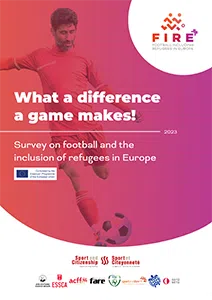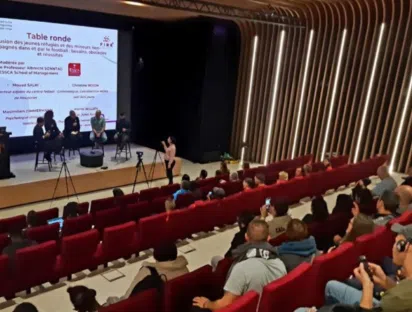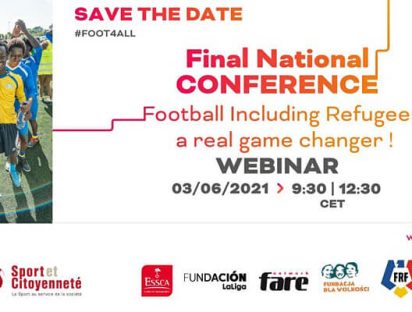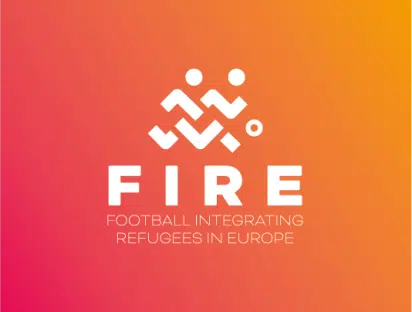Since 2015-2016, Europe has been facing a massive wave of asylum applications, generating persistent challenges in the reception and integration of refugees. As part of the FIRE+ project, Derya Göçer, Özgehan Şenyuva (Middle East Technical University, Ankara) and Albrecht Sonntag (ESSCA EU*Asia Institute) conducted a survey to assess the impact of grassroots football club initiatives in favour of this target population.
The essence of football and social inclusion
Football clubs have proved to be key players in civil society, responding with motivation and perseverance to the challenge of offering refugees a first contact with their new host society outside the administrative structures.
It is widely accepted that football has a unique capacity to "bring people together across cultural divides and strengthen social cohesion". Civil society organisations such as Sport and Citizenship and the FARE network regularly highlight to what extent football, with its simplicity and universal popularity, has become a powerful tool for social, emotional and cultural inclusion.
Lessons from the FIRE+ survey
The FIRE+ survey aimed to go beyond intuitive beliefs, good practices, and anecdotal evidence by providing policymakers with a meaningful, scientifically robust analysis of football clubs' perceptions of the impact of their own voluntary activities.
The recommendations resulting from this survey relate to three areas: staff, funding, and gender.
Staff
For amateur football to continue to play an impactful role in the integration of refugees in Europe, it is clear that relying solely on the goodwill and commitment of volunteers and ad hoc support through local funding or federation subsidies is not enough. Funding plays a key role in enabling football clubs to fulfil their potential as centres for social integration.
The survey results show that the ideal funding is one that supports successive projects over several years, with semi-permanent staff. This allows staff to develop their skills, work with different groups on a sustainable basis and transfer their experience to new waves of refugees.
Funding priorities
Funding for projects from local authorities, football federations or private donors should as a priority target:
- Equipment: Club jerseys or full kits to ensure that new arrivals do not feel different during training sessions. This is an often underestimated symbolic first step towards integration and equality.
- Sustained training activities: Regularity is crucial to social integration. Funding should enable clubs to continue their offers for refugees without asking their already loyal local members to pay extra.
- Youth exchanges: Funding should enable clubs to organise exchanges of young footballers at regional, national or even international level, without bearing the full cost of travel. These experiences are invaluable for the sense of belonging and inclusion of unaccompanied minors, a significant and particularly vulnerable target group.
Gender
The survey results strongly suggest that women should be able to play football regardless of their religious beliefs and the dress codes imposed on them. In other words, headscarves should not be an issue. A message of acceptance and equality addressed to both local and refugee communities has a positive impact on both.
Ultimately, the FIRE+ survey reveals crucial recommendations for maximising the impact of grassroots football initiatives in integrating refugees. Football is of course unable to guarantee smooth integration, but it offers an incomparable and enriching contribution to the process of social inclusion. A football club is not just a place to play, it is a place where the difficult process of integration into a new society begins. Football's humanist, volunteer-driven contribution to this colossal challenge deserves the support of all stakeholders.
The full survey is available to download from the project website: footballwithrefugees.eu
Click here to download the survey
Photo: © Sport & Citizenship






